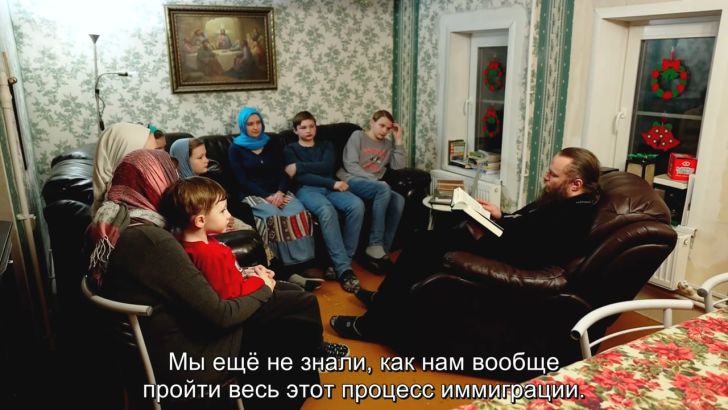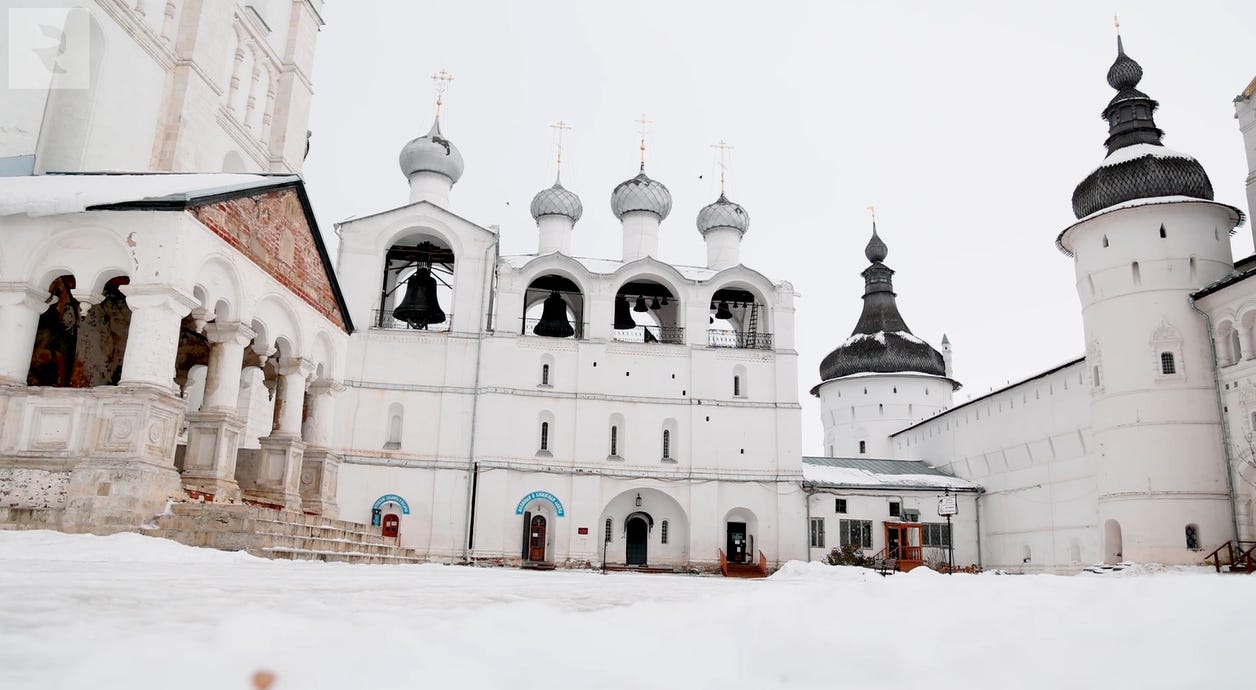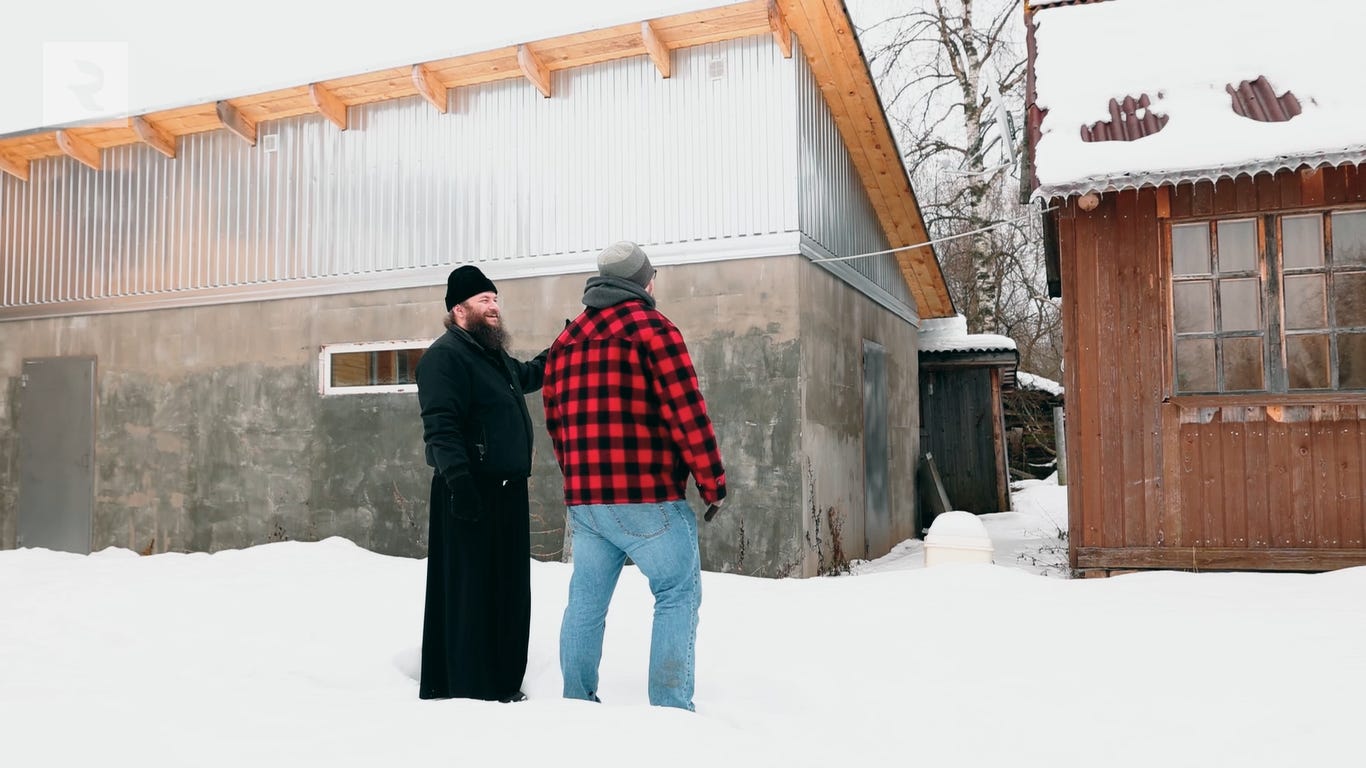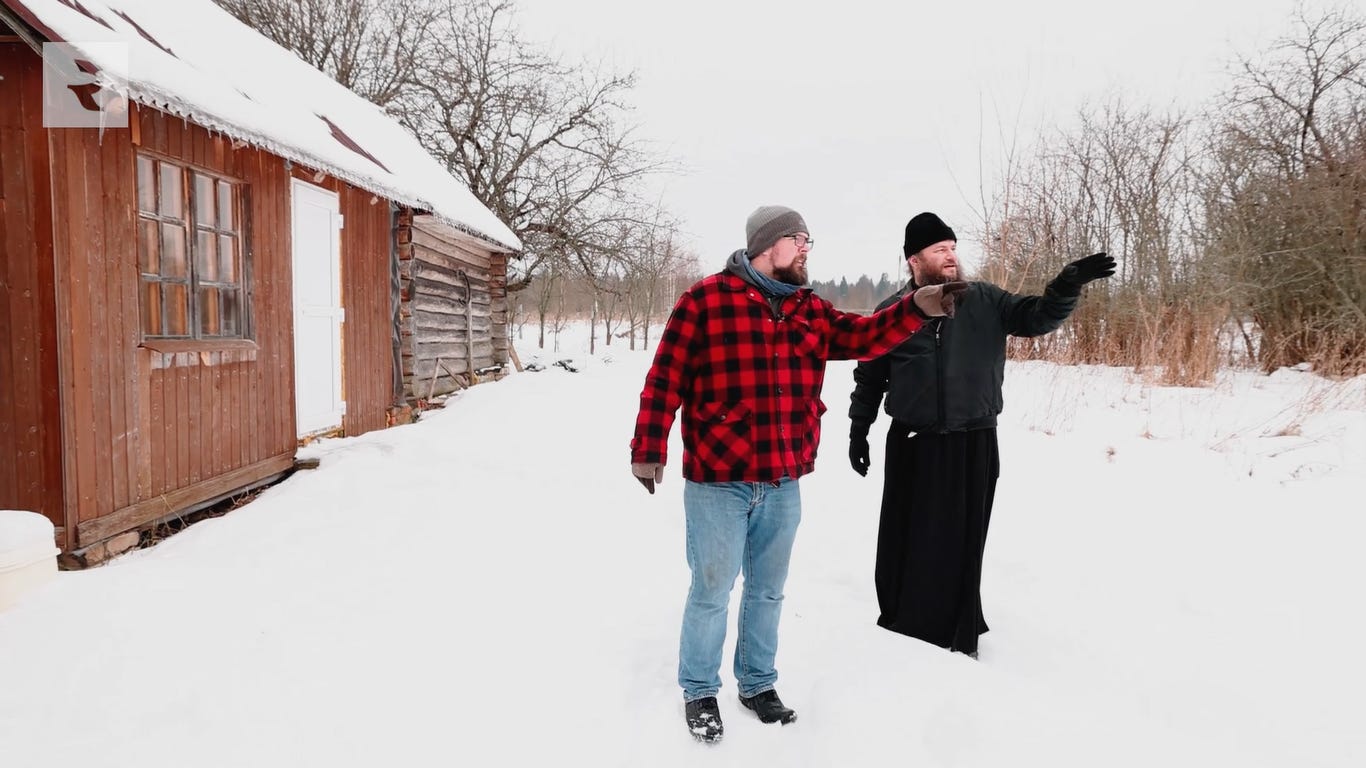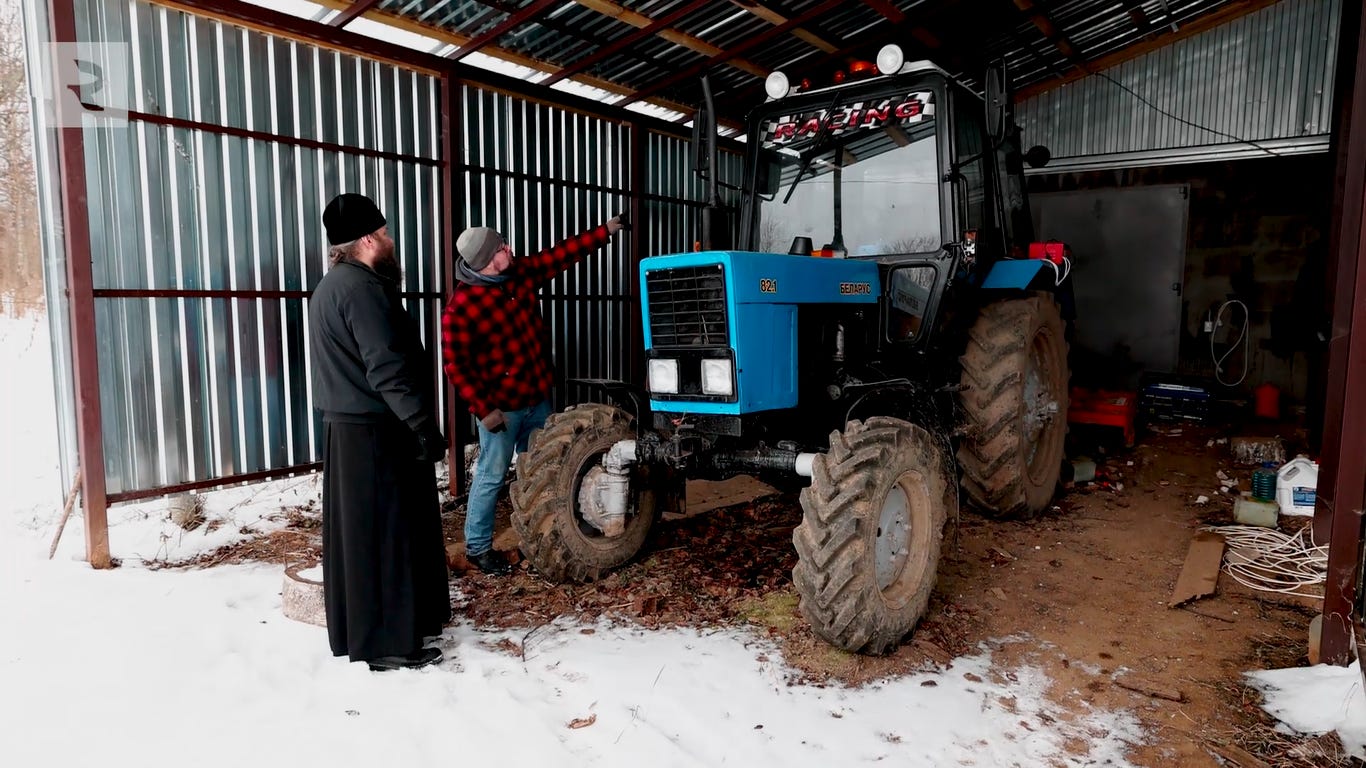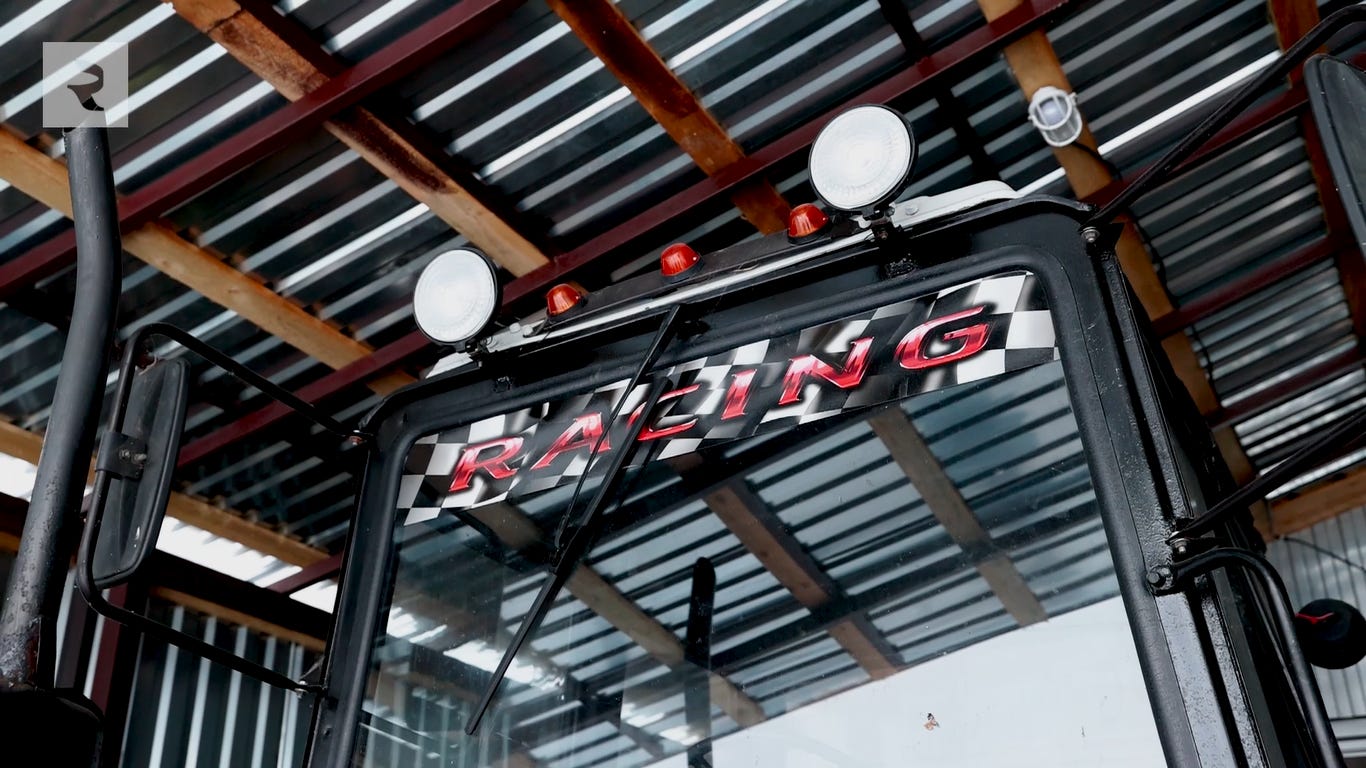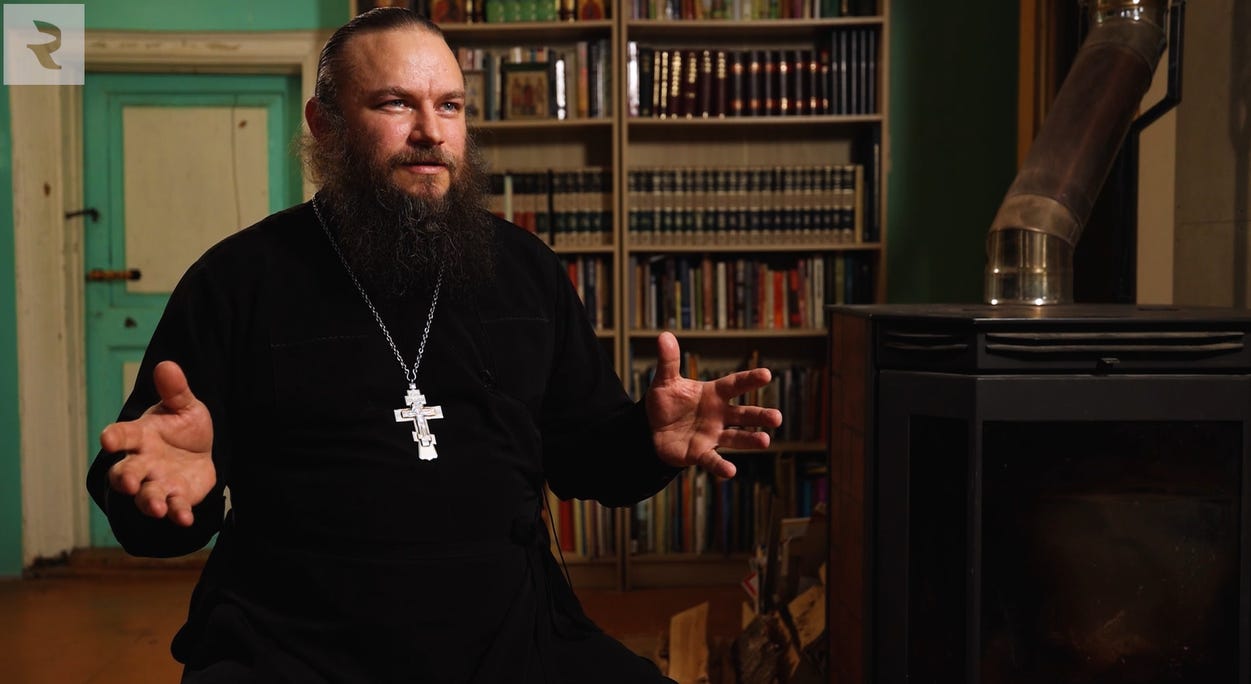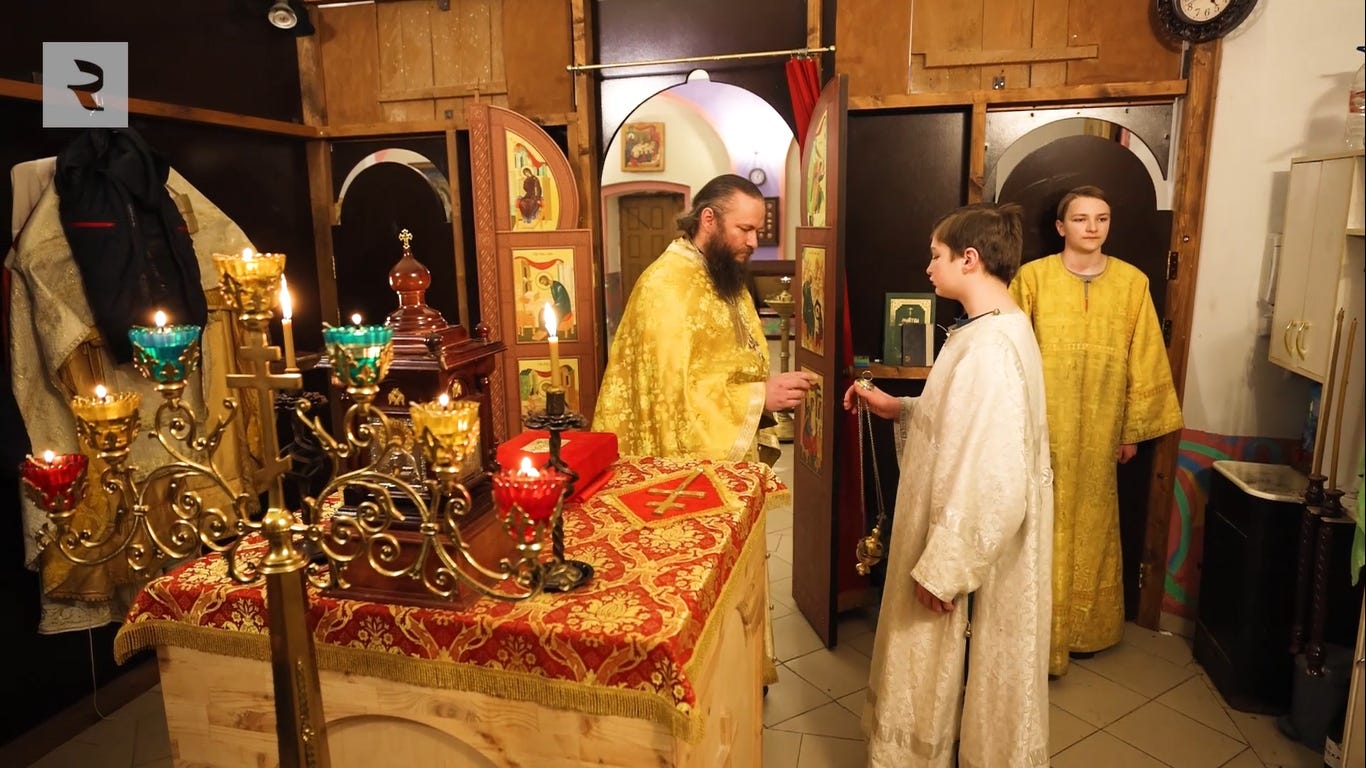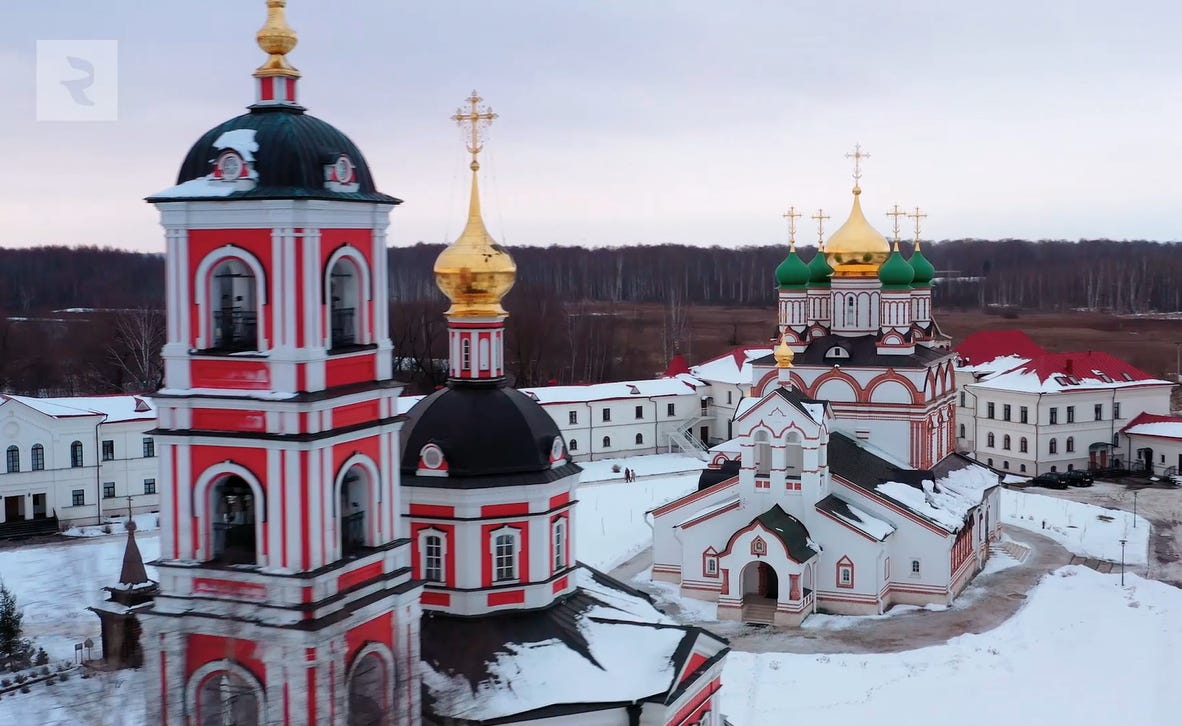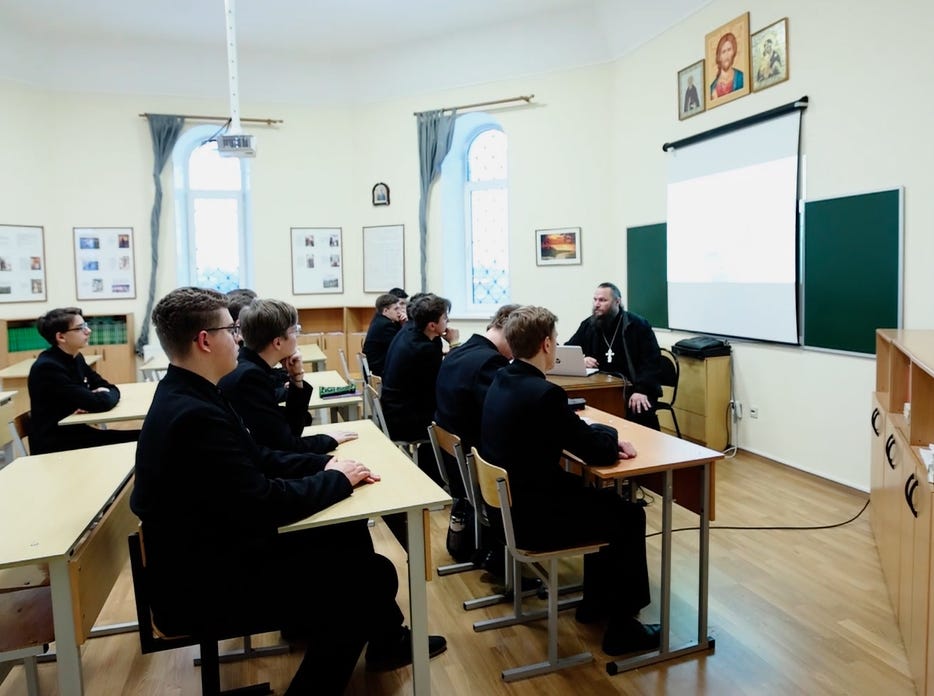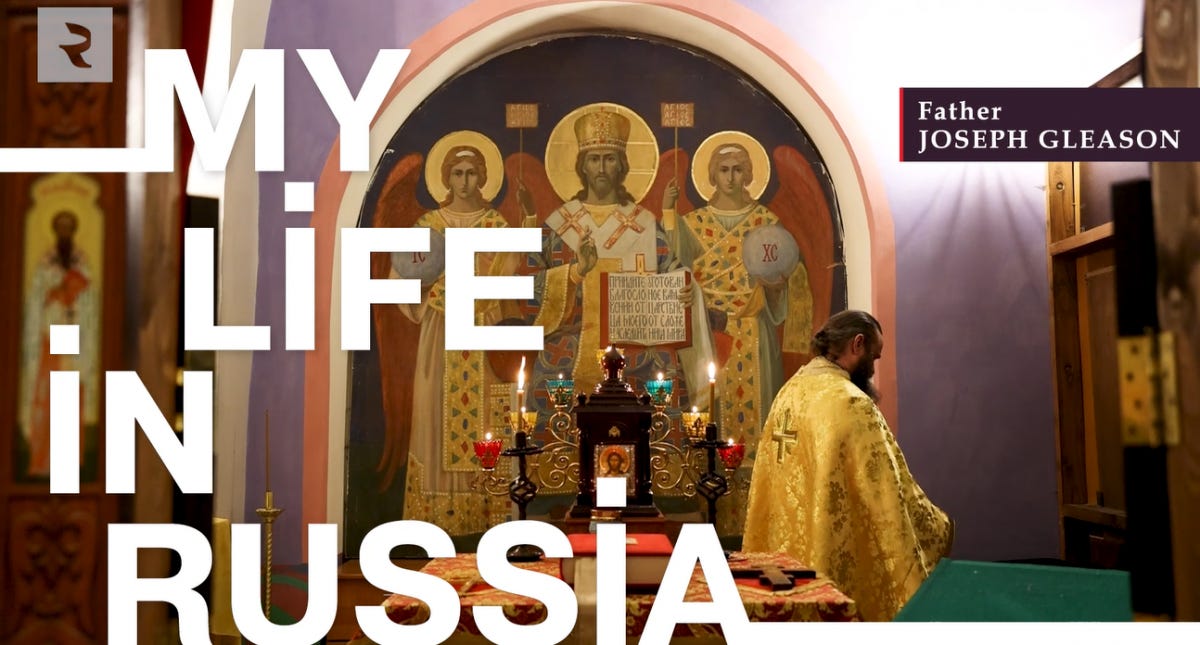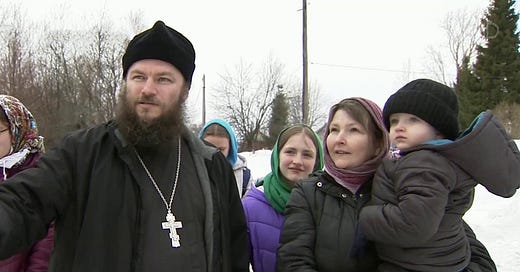
Discover more from Fr. Joe’s Newsletter - Moving to Russia
Conservative American Family Moves to Russia with Eight Children - 15 Minute Documentary (VIDEO)
Includes full video documentary, transcript, and photos . . .
Father Joseph Gleason made the choice to put his faith above today's secular ideas and left America to raise his children in Russia, which he feels offers one of the last few bastions of Christianity on the planet.
Just 30 years ago Russia had official state atheism; now the national "enigma wrapped in a mystery" is arguably the most religious nation in Europe. Did Father Joseph make the right choice? And what was it like bringing 8 kids and a wife to a country where not one person spoke the native language? (The video is in English, with Russian subtitles.)
TRANSCRIPT
Fr. Joseph Gleason:
[It happened years after] my family's conversion to Orthodox Christianity. We left our home in America, we tried to learn this very difficult language, and our first week here it drops down to minus 35 Celsius [minus 31 Fahrenheit] — the coldest Christmas in Russia in over one hundred and twenty years.
We didn't know yet how we were even going to immigrate. We just came as tourists and said, "We are going to figure it out."
I think it started out not as researching some place to move, or even knowing a lot about Russia. It started with a couple of things. One was our conversion, my family's conversion to Orthodoxy Christianity.
The other half is just the sadness with which I've seen the decay — the moral decay — in America over the past decade or so. In many different things I have not been happy with, one of the biggest that just really — in a negative way — struck a chord with me, was this whole idea of homosexual "marriage". They are determined to redefine what marriage actually means.
We just started looking. I considered some countries in South America, and I looked at various countries in Europe. A couple of things that were really important to my wife and to me was that wherever we move needs to have legal homeschooling. Now, if people want to send their kids to public school, or private school, that's fine, but we've already always homeschooled our children. That's the way we want to go, so we want to keep doing that.
That really narrowed things down, because there are not a lot of countries where homosexual marriage is not recognized, civil unions are not recognized, and at the same time, homeschooling is legal. And so that brought us down to a short list.
I came here [to Russia]. I came here again. And the third time I flew here, my wife and I decided we were moving. "We're going." And we came to Rostov Veliky area, not Rostov-on-Don, but Rostov Veliky, which is about a three hour drive north of Moscow.
I fell in love with the place. That's a city that is more than 1100 years old, which is just mind-boggling to me. In America if you can find a two hundred year old building, it is like this ancient artifact, and they have pubs and dachas here that are far older than that.
There are literally five Orthodox Christian monasteries, just in the city limits of Rostov. Now, there are more outside of it. But just in the city limits of this little city of thirty thousand people, there are five Orthodox Christian monasteries. That's more than there are in Texas! You know, Texas, which is where I lived twenty four years of my life, which I love, has four Orthodox monasteries in the whole state. And that's a state that is huge — it's the size of France.
I've always been not the city mouse, but the country mouse. I like to go where there's trees and land, and so I needed a place that had civilization, grocery stores, and gas stations, yet that was far away from the big city.
You know, If I need to hop in the car and drive on the interstate down to Moscow, I can do it. No big deal. I can drive one hour up to Yaroslavl — more than a half million people — many stores I need are there.
But just for my day-to-day life, I like the slow pace, I like living on an acre of land, having a tractor, planting a garden, and just being able to live our lives quietly and in peace. In America we had several acres of land and a two thousand square foot house, and now we have one acre of land and a seventeen hundred square foot house. So it's not bad.
Fr. Joseph:
So, you don't see a lot of two car garages in rural Russia, but I'm a spoiled American and I wanted it. Here's the deal: We actually tried it the other way [without a garage]. We own two cars. There are ten of us in the family, the car doesn't hold ten people, so we have two cars. And we spent the last few Russian winters realizing that in Russia, winter is not something that happens for a couples of weeks and you just deal with it...
RT (Tim Kirby): Yeah, it's months.
Fr. Joseph:
They do winter professionally here. So, literally months of scraping ice, brushing snow off the car...
Tim: Speaking of professional, I just wanted to say...
Fr. Joseph:
Yeah, this [giant snow shovel] is the big deal.
Tim: Not too useful in Illinois or Texas.
Fr. Joseph:
Right, that's for sure! That's the real deal!
Tim: Wow!
Fr. Joseph:
Here's proof that we are in rural Russia, but that we are here in the twenty first century. You know, it just looks like this normal Russian dacha, but then there's this two-car garage with the electric garage door.
Well, [similarly], here is this old building. They started building it with logs, finished it out with some older wood siding, it's been siting here for years . . . and then here's this giant satellite dish! And that's because, instead of turning this into a banya/sauna, I'm turning this into my office. This is where I teach a lot of my English lessons online via Zoom. And so I have a separate high-speed internet connection to my office.
Tim: Yeah, wow, it's like working in a banya! That is great!
Fr. Joseph:
Yeah, so it's just this wonderful little wood room. I have a couch out here, a small library, a little fridge with some cokes in it, a printer, and I setup my laptop over here on this big ole homemade desk. We have the high-speed internet coming in. And I just sit here in this easy chair and chill, teaching kids English, and I really enjoy it. It's peaceful out here.
Fr. Joseph:
Oh, and here are the greenhouses, as you can see, three over here. They're pretty big greenhouses. This is just a really great place to . . .
Tim: Were those here before you?
Fr. Joseph:
No, we added those. And so, it's just great. Here, spring gets going late. While in America maybe you're planting stuff in March or April, here you really don't want to plant stuff until May. But with this [greehouse], it warms everything up a bit earlier and it goes a little later, so you can actually start growing stuff here in April, and you can keep it growing past September, October.
Tim: And talk about Russian stereotypes... wow! It's a Belarus tractor, that's great... oh! Did you put the "racing" sticker there?
Fr. Joseph:
No, that's how it came, believe it or not. I got in Yaroslavl. It's got the big lights on it...
Tim: That's great!
Fr. Joseph:
My "souped-up" racing tractor!
Fr. Joseph:
So, in America, we had really low taxes. We were out in the country, I had a country house, several acres of land, and we were still paying over a thousand dollars a year in taxes. But that's low, you know. My sister and other people I know are paying five, six, seven, eight thousand American dollars every year just on property taxes. Well, here, it's amazing. Every year — and I've got this house, I've got an acre of land — and every year I pay less than fifty dollars for the whole year for the property taxes.
Tim: Yeah, I paid eight bucks this year.
Fr. Joseph:
Yeah, it's almost nothing. It's just mind-blowing. So, technically, yes, there are property taxes here, but...
Tim: It's very nominal.
Fr. Joseph:
Exactly.
Fr. Joseph:
The first year [in Russia] was very tough. And it was made even tougher, because one or two months after we got here I was diagnosed with a certain form of cancer. And so, throw everything together: We left our home in America, we came to a new place, we're trying to learn this very difficult language, and our first week here it drops down to minus thirty five celsius, which is very unsual. Usually it does not get that cold here. It did the first week we were here. It was the coldest Christmas in Russia in a hundred and twenty years. And, you know, there were a lot of frustrations, a lot of difficulties. We didn't know yet how we were even going to immigrate. We just came as tourists and said, "We're going to figure it out."
You are already carrying this massive load, you're already just barely able to walk, and then, oh, let's throw cancer on top of that! So, instead of doing what I was planning on doing — that first summer I was hoping to drive my family all over Russia and show them the beauties of Saint Petersburg, or the beauties of Moscow, these amazing cathedrals, monasteries, just the beautiful landscapes across Russia, the trees and the ponds and the rivers — instead, my wife (not speaking Russian), and our eight children (not speaking Russian), had to be stuck in a apartment in Rostov, while I was three hours away in Moscow, throwing my guts up on chemotherapy. That stank. It was bad.
Thankfully, now that we are permanent residents of Russia, most medical care that we get is free. We don't have to pay for it. But for a short period of time, even if you do have to pay for it, and even if you get hit with something major like cancer, surgery, or chemotherapy, you know, it would break your back in America, versus here it's just a pain, but it's doable. For the surgery and the three-week hospital stay I payed a total of, I'd say, less than fifteen hundred dollars — out-of-pocket, one hundred percent.
Fr. Joseph:
While in America, I was a computer engineer for close to twenty years, and so our income came from the computer work that I did. And then I basically was a priest for free. The bishop ordained me as a deacon, and then as a priest, and I served as a priest in America, but I was not getting paid for this.
Most of what I do now is teach English. That's how we feed our family. And the Russian Orthodox Church hasn't sent me any money, even to this day. They have warmly accepted me, but even in Russia, if you want to make money as a priest, you're gonna have to find a big enough congregation that's going to be able to support you. You can't go out in the middle of nowhere, to a small church of maybe fifteen or twenty people, and expect them to be able to support a family of ten.
And so, perhaps if I lived in Moscow, then they could put me in a church where it would be feasible for that to be my only job. But out here, we are basically doing the thing that we did in America. I have a source of income, there's work that I do, but as a priest, I'm not doing it for the money. I'm doing because I have faith in Christ, and this is how I want to serve God.
I have a bunch of students. I have dozens, maybe around forty students currently, that I teach online via Zoom. And then there's nearly a hundred kids in the tenth and eleventh grade boarding school at Varnitsky monastery, where I teach them — sometimes online, and sometimes I go there and teach them face-to-face.
Fr. Joseph:
Well, like I said, Rostov Veliky — population about thirty thousand people — they have five incredible Orthodox Christian monasteries, and this is one of them. This is Varnitsky monastery. And this is surprising for a lot of people — it's actually the birthplace of Saint Sergius of Radonezh!
Tim: Oh, I see, that's our patron saint of this podcast, and a patron saint of much more. Huh! I didn't even know he was born here!
Fr. Joseph:
Yeah, when he was a little older his family moved to Radonezh, but he was actually born right here. In fact, the icons on each side of the archway right there are Saints Cyril & Maria, his parents.
Tim: Ah, I see...
Fr. Joseph:
And so, on the right you see this big red cathedral here, this big red church. That's approximately where their house was seven hundred years ago.
Tim: Oh...
Fr. Joseph:
I don't know how they keep track of that, but I'm impressed.
They have an incredible Orthodox Christian school here. So, here in Rostov, you can go to public school, you can homeschool, or you can send your kids to the Orthodox school here, which is free of charge. They don't charge for it.
And the final two grades of high school, the tenth grade and the eleventh grade, is a world class boarding school for boys. It's unbelievable, they send boys here from all over the country. They test them, and the best ones get to stay here. It's almost like a prep school. A lot of the boys that complete their studies here end up going straight into seminary, and going through with flying colors. A number of them are already clergy in the church now.
And so, for these two grades — tenth grade and eleventh grade — for the boarding school, I come here and I teach English, nearly a hundred students.
Fr. Joseph:
We have this interview and we talk and talk, but however many hours we talk and we piece it together, it's still just going to be a fraction of what we've gotten to experience over the past several years, just soaking in Russia, realizing what a gem this really is.
Is it perfect? Absolutely not. If you want to find some negative things here, you'll find them. Of course, you know, friends, relatives, and people back home are just terrified [at first]. They're saying, "You're crazy! You're nuts! Don't you know that Russia is terrifying, that Russia is scary? I'm afraid something bad is going to happen."
So I started taking photos. I just go to a gas station, I go through a grocery store, taking pictures — just of simple, normal, everyday things. And I get this amazing response from people online, people that write back to me saying, "Oh my goodness, the grocery store is full of food!" You know, that's what they're for. They are full of food. People have this idea that it's still the seventies or the eighties, but that's why I decided, you know . . . the website that I'm an editor on — Russian Faith — a lot of what we're trying to do there is just to tell people the truth about simple things is Russia.
It doesn't have to be out of this world. We are just showing people churches, showing people community gatherings, showing people Russian food. Things that are just mundane and everyday, are still amazing to Americans because they start to realize, "Hey, Russia . . . There are normal people in Russia, husbands and wives and children, and they have schools, playgrounds, and good tasting food and really good music, beautiful dresses for the women, and folk singing . . ." So, to me it's kind like my own little tiny, you know, I don't want to say missionary project because that has too many connotations . . . I really just want to show people that Russia is a good place.
Fr. Joseph:
Yeah, we like tripled the population of the village when we moved in...
Tim: Oh, yeah, I guess you did. I didn't think about that!
For more high quality footage of Rostov, Yaroslavl, and the Golden Ring of Russia, watch One Flew Over Rostov the Great.
Subscribe to Fr. Joe’s Newsletter - Moving to Russia
Escaping America & Western Europe

